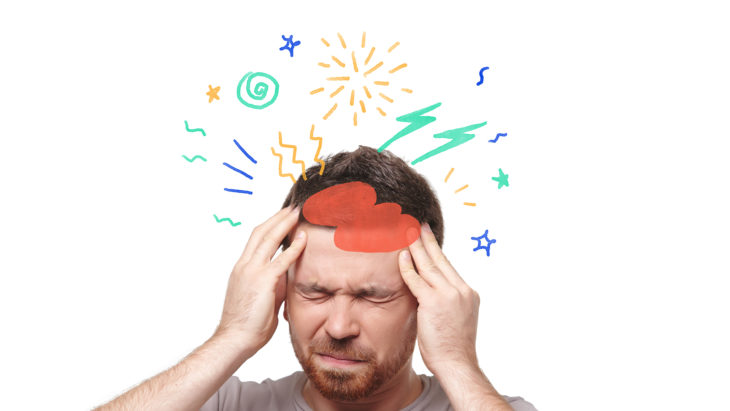Perhaps one of the most common medical problems, headaches is what most people experience at one point in their lives. They can affect almost anyone, regardless of their gender, race, and age. Headaches can be signs of various things, such as stress, or it can even be from a medical disorder, such as high blood pressure, depression, migraines, and anxiety.

Source: homenaturalcures.com
Contents
What causes headaches?
According to https://treatheadaches.com, headaches can occur in any part of your head, on both sides, or in just one side or location. And of course, there are different ways that you can define it. Headaches are categorized as primary when they do not happen by another condition, or secondary headaches, that occurs when there is an underlying condition.
Primary headaches
This type is caused directly by the overactivity or problems with the structures in the head that are sensitive to pain. This might include muscles, nerves, blood vessels, and the nerves of your neck, back, or head. This can also result from some changes in the chemical activity of the brain. The most common primary headaches are cluster headaches, tension headaches, and migraines.
Secondary headaches
This type is basically a symptom that will happen if another condition stimulates the nerves of the brain. Hence, headache symptoms can be caused by another illness or factor. There is a wide range of factors that can cause this type of headache, and some of them are a hangover, blood clots, a brain tumor, concussion, dehydration, glaucoma, and many more.

Source: Oscar
Headache triggers and who is more prone to get a headache
Of course, stress and colds are not the only reasons why you might get a headache. Sleeping in late or cleaning your home can also cause them. Here are the triggers for it and here is how you can fix it:
1. Relaxing after stress
So, you have been working from Monday to Friday, and you feel fine. However, what happens if you wake up on the weekend and the headache is quite serious and strong? It is mostly because of all the tension and stress that happened during the week. The stress levels drop, and it causes a quick release of neurotransmitters, which will then send impulses to your blood vessels to constrict and then dilate, which is the main cause of a headache. In order to fix it, try avoiding sleeping in during weekends. More than 8 hours of sleep can bring you a nasty headache. Instead, try relaxing more during the week.
2. Pent-up anger
When you are angry, your muscles tense up, especially in the neck, back, and scalp. This then causes a feeling of having a tight band around your head. This is the number one sign of a tension headache. If you want to fix it, you can breathe deeply when you feel anger. This should help your muscles relax more.

Source: Reader’s Digest
3. Poor posture
This can lead to a tension in your back, shoulders, and neck, that will lead to a headache. Usually, the pain is located at the base of your skull, and it can sometimes flash into the face, mostly in the forehead. In order to avoid this headache, avoid standing or sitting in one position for a long time, sit up straight and always make sure that you have support for your lower back.
4. Bad weather
If you often get headaches, you might find that high humidity, grey skies, storms, or high temperatures can cause head pain. The changes in pressure that causes the weather to change can trigger chemical changes in the brain. This will irritate the brain, hence leading to pain in your head. You cannot change the weather, so it is difficult to fix this problem, but you could look at the forecast so that you will know to take measures and prevent headaches.
Conclusion
People that have high-stress levels do not have a proper posture, or who let their anger build up are most likely to get headaches.
